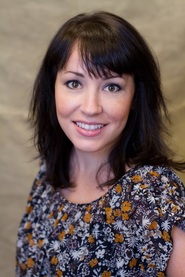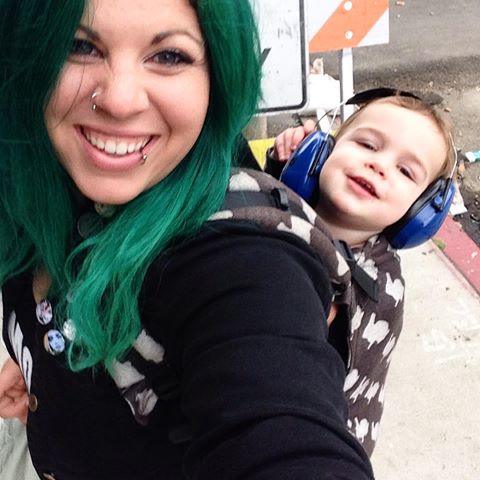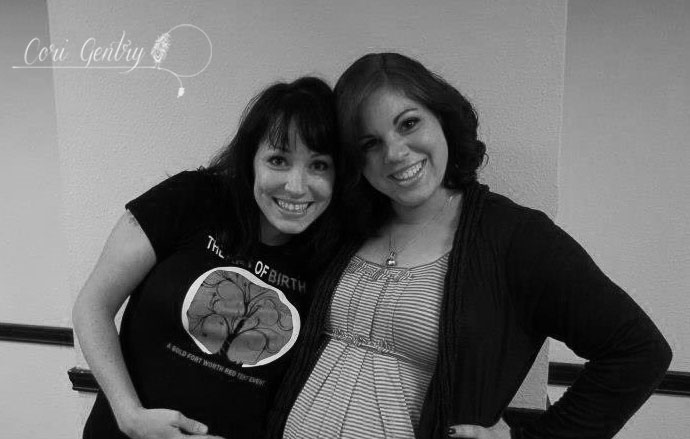|
I love green smoothies. Sometime I need to feel like I'm really getting a treat though. Enter the pumpkin protein smoothie. Let's just get straight to the recipe so you can drink this thing:
1/2 cup Greek yogurt, plain, look for 23g protein per serving! (vanilla is better than plain here) 2 Tbs milled flax seed (you can leave it out if you don't like the texture) 1 cup of pumpkin puree Medium banana Handful of ice Put in blender... and blend. Drink while you make another because this is what you live off of now. You are welcome.
0 Comments
A mom recently asked why successful VBACs (vaginal birth after cesarean) are such a challenge. It's a great question, because they really shouldn't be. A VBAC is just letting the body do what it was supposed to do, a repeat c-section is intervening before that is allowed to happen. But why is it hard to find a VBAC supportive provider, and even when some moms find a provider that will allow a VBAC, why are women with some providers achieving their VBAC goal more than others? Many birth professionals will point to fear and misinformation, and both are completely true... but there is more to the story. Abbey Robinson is a doula, a Birth Boot Camp instructor and is also on the Birth Boot Camp advisory board. She is an ICAN (International Cesarean Awareness Network) support group facilitator as well as the chapter leader of the largest chapter of Birth Network National in the country. Most importantly, she has had three c-sections (two were planned VBACs) followed by an incredible VBA3C (vaginal birth after 3 cesareans). Thank you Abbey for sharing your insight: "This is a very complex answer... I wish it was just as easy as 'fear' In 1996, VBAC rates were higher than ever, when I had my first c/section, as I was lying on the operating table, they were telling me I could have a VBAC... no big deal. ACOG (American College of Obstetrics and Gynocology) says VBAC is safe. In 1999, towards the end of my pregnancy ACOG changed their guidelines to be extremely restrictive towards VBACs. Now all hospitals are required to have emergency services ready for any and all VBACs, an OB had to remain 'in house' for any and all VBACs, I went to my prenatal appointment thinking I could continue seeing my midwife... but no, I had to use an OB. None of my team was suddenly fearful, I had not changed my stance, but guidelines changed and because of that, now I would have a lot more trouble getting the support I needed. What happened? Cytotec happened. Cytotec was being given as an induction drug to VBAC mamas and their uteri were blowing up. literally... babies and mamas were dying. It was horrific. Instead of saying "HEY, stop using that Cytotec on VBAC mamas!"... they said "HEY, VBACs are dangerous!!! We should not be doing them!!" Let me just clarify that the risk of rupture in a scarred uterus although extremely low (about 0.6%-with 96% of those ruptures not causing injury) it's much higher than in a woman who's never had a c/section (even if they are induced, a rupture in a woman with no prior surgery is a freak thing and not comparable to UR in VBACs) NOW... the damage is done. In 2010, ACOG changed guidelines again to be less restrictive, but the impossible restrictions remain in place. In 2005, when I was trying to have a VBA2C, I ended up with crappy midwives because I didn't know of anyone else at all who would give me the chance... that's why groups like ICAN are so important because women can come together and share who truly is and truly isn't supportive.... and it's sad because some of the most NCB (natural child birth) friendly providers just are not VBAC supportive... and some providers who are VBAC supportive are NOT VBA2C supportive... and nearly NO ONE is VBA3C supportive of more... I mean... that is a needle in a haystack. Why? Because it's more dangerous??? NO! Not really at all... it's because ACOG guidelines once again state that VBAC is safe for many women after 1 c-section and some after 2. No mention of 3 or more...we get left off. The risk of uterine rupture is about the same as the risk of cord prolapse, placental abruption... etc... those rare things we talk about that can happen... but NO hospital requires an OB to sit there and wait for a cord to prolapse for a woman who is otherwise completely low risk. VBAC tolerant providers will say they support VBACs but wen it comes down to it, they place impossible restrictions on moms. Its the same basic principle as finding a truly supportive NCB friendly provider, it's just that much harder to find them. Dr. Weinstein gained national attention from all kinds of birth advocates, his posts were being shared by Improving Birth, etc. and he is no longer taking VBACs because of the time it took from his family.... He couldn't survive in the system. It's discrimination and it comes from all levels, most OBs just accept it and push for repeat c-section rather than dealing with the inconvenience of labor sitting. Dr. Cummings (a very VBAC supportive OB) has literally spent his life in that hospital. Sleeping, eating, living there... I honestly don't know why he does it. No one was upset with Dr. Weinstein for stopping VBACs, sad, yes, but who can blame him? Politics, greed, fear, convenience all fuel the lack of VBAC supportive providers but sometimes its just the stupid guidelines and if ONE OB in a practice wants to be supportive but his partners are not... that won't work... that puts a crap ton of pressure on him to be the only one on call for them... and he has no life otherwise. We have to get the primary c-section rate down... those are the jerks we need to go after. I can think of about 5 hospital providers in DFW (Dallas Fort Worth area) who are truly VBAC supportive... maybe 10 if I really dig up the little pockets... but that's it... and that is A LOT for one metroplex area... some places have absolutely zero. We are very lucky here... driving an hour or more to a great provider should be a no brainer if you really want your VBAC.... there are lots more out of hospital providers because they don't have the same stupid restrictions." Having a VBAC is hard not because it's dangerous, but because of a medical system that doesn't understand and often times can't support it. Every subsequent c-section carries more and more risk to mom and baby. Preventing that first c-section is essential! How many women who walk into hospital in labor do you think are thinking "I might be having a c-section today." Not many! If you walk into a hospital with a high c-section rate to deliver with a provider with a high c-section rate who maybe has mentioned the possibility of a c-section a few times you have put yourself on a very slippery slope. If you have already had a c-section the good news is that we do have VBAC supportive providers in the area, but if you have not had a c-section that first birth is the most important in determining what your subsequent births will be like. If you don't choose your provider and birth place carefully you may find yourself in the sometimes difficult position of planning a VBAC for your next birth. Thank you Abbey for sharing your perspective. You are an amazing resource and I'm lucky to know you!  Abbey Robinson serves the Tarrant County, Texas area as a doula and Birth Boot Camp natural childbirth instructor. She is also a group fasilitator for her local ICAN group and a Chapter Leader for the Tarrant County Birth Network. You can learn more about her services and journey as a birth advocate at Divine Birth Doula. |
 I'm a childbirth educator, birth doula, and birth activist with 4 little boys and occasionally enough time to write. I'm a childbirth educator, birth doula, and birth activist with 4 little boys and occasionally enough time to write.
EventsNatural Birth Series
Sept 28 – Nov 15 Carmel, 6:30–9pm Register Infant Sleep for Expecting & New Parents September 28th 6:30pm - 9:00pm Register Gentle Cesarean: Planning & Recovery September 30th Toro Park, 3-6:30pm Register Natural Birth Refresher October 15th Salinas, 1– 4pm Register Preconception & Early Pregnancy Class October 22nd Salinas, 1– 4pm Register Sibling Prep for Parents & Kids November 4th & 5th Toro Park, 2:-4pm Register Fall Home & Birth Center Birth Series Nov 7 – Dec 12 Salinas 7pm–9pm Register VBAC Class November 12th Salinas, 1–4pm Register Natural Birth Series Nov 29th – Jan 17th Salinas 6:30–9pm Register Archives
January 2017
Categories
All
|

